In 1987, the first 350-ton Ground Effect Vehicle (GEV) from the series of Soviet battle missile carriers was produced. The massive “ship” was called Lun (also called Project 903), after the Russian name for a bird of prey, harrier.
The Lun-class ekranoplan (NATO reportedly named Duck) was designed by Rostislav Evgenievich Alexeyev. It was used by the Soviet and Russian navies from 1987 until the late 1990s. A second Lun-class battle aircraft (named the Spasatel or “Rescuer”) was to be produced, but due to the end of Cold War and partial disarmament, the project was changed to a rescue aircraft/mobile field hospital for rapid deployment to any coastal or ocean location. It was about 90% done when the military funding ended and the second Lun ekranoplan was never completed.
The MD-160, the only model of the Lun-class ever built now sits unused at a naval station in Kaspiysk. The Russian Defense Ministry has no plans to revive the project.
Let’s take a closer look at this unbelievably massive and truly remarkable plane/ship hybrid!

War History Online
The Lun was originally developed by the Soviet Union as high-speed military transports and was mostly based on the shores of the Caspian Sea and Black Sea along with other crafts.

War History Online
This hybrid vehicle is driven by 8 turbojet engines. With a length of 73.8 meters, it is one of the largest ever built.

War History Online
In 2005, the International Marine Organization classified this type of crafts as flying ships rather than swimming planes.

War History Online
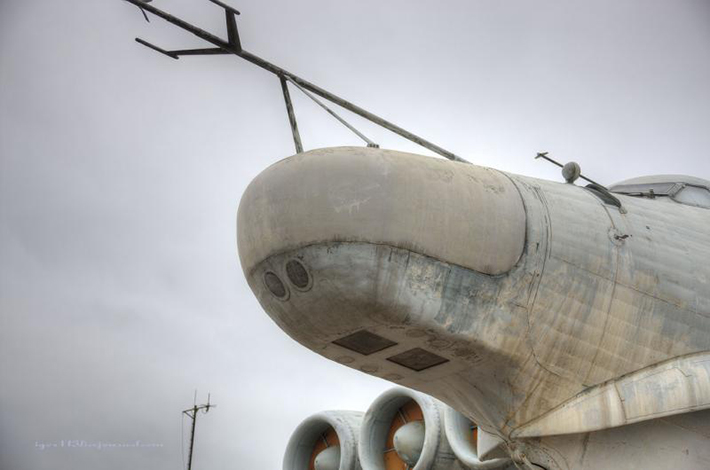
War History Online
This is because Lun is a GEV which flew using the lift generated by the ground effect of its large wings when close to the water surface – about 4 meters or less.

War History Online
Lun carried 6 Moskitcruise missiles (SS-N-22 Sunburn in NATO classification).
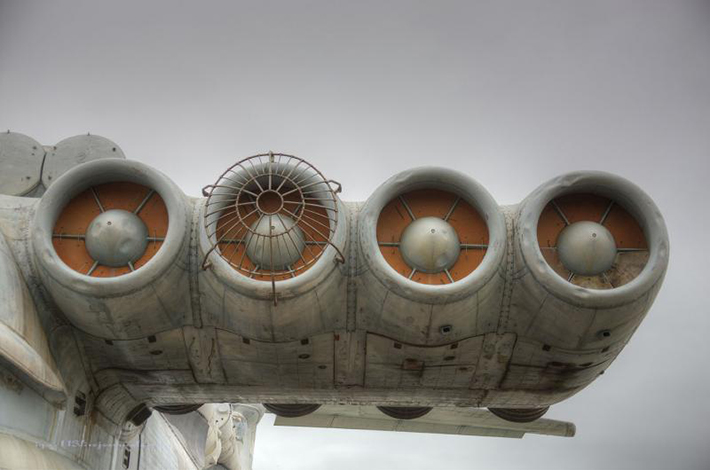
War History Online
“Hitting four of them causes inevitable sinking of a vessel of any known type and size.”
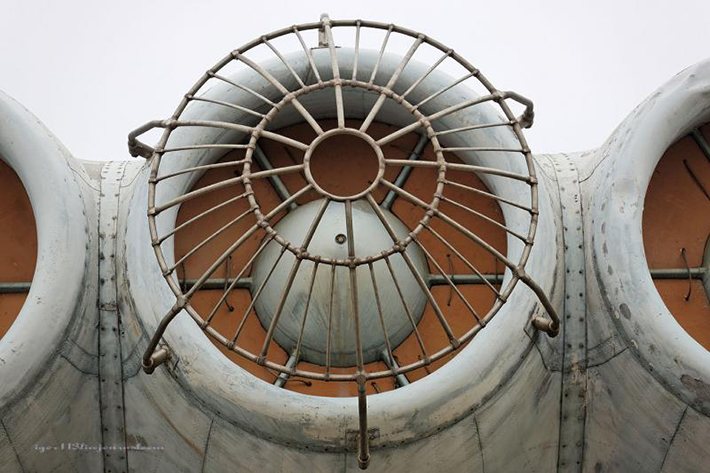
War History Online
Lun doesn’t have a landing gear, only a huge hydro-ski which makes it impossible for it to get on land. For this reason, a special floating dry dock was designed for it.

War History Online
Its body is divided into 4 parts: fore, middle, after-part and keel together with stabilizer.

War History Online
The fore part contains the pilot house and pillar holding 8 main engines. There’s also a room with secondary ones.

War History Online
The middle and after parts is fully equipped with test facilities complete with a caboose and a toilet.
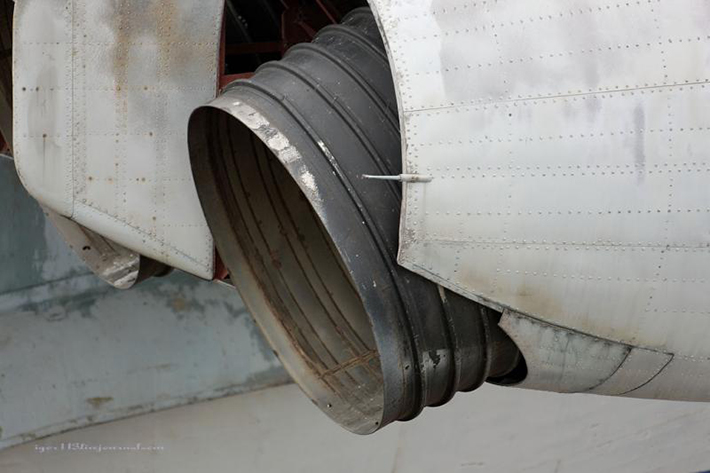
War History Online
The keel is filled with power installation for electricity supply during mooring and a complex of radio navigation and communication equipment. There’s also a room for a gunner placed in a cross-line of keel and stabilizer at a height of 12 meters over the waterline.
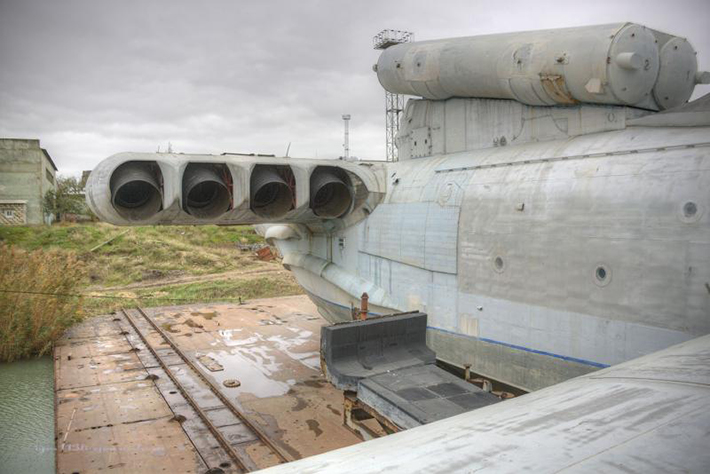
War History Online
The massive Lun class ekranoplan’s crew consisted of 7 officers and 4 warrant officers.
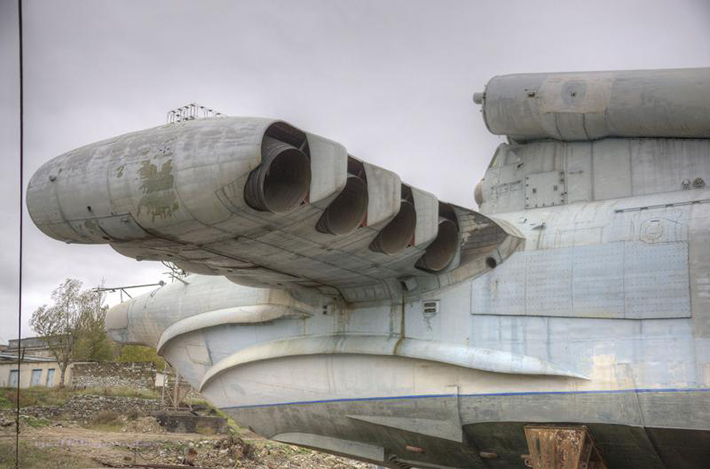
War History Online
Lun could be absolutely autonomous for 5 days.
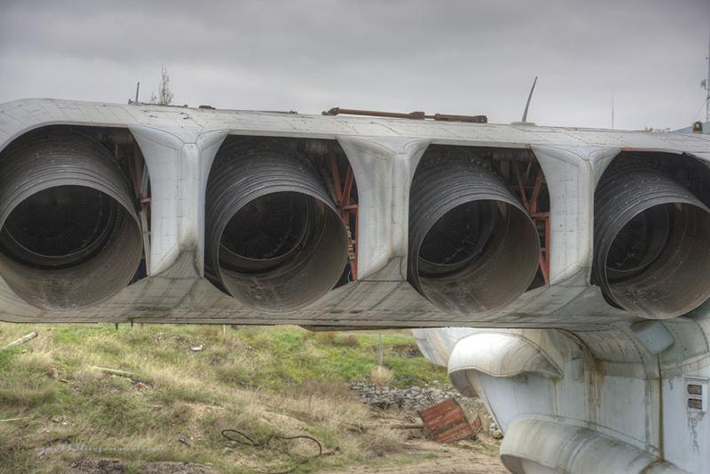
War History Online
The aircraft was powered with “eight Kuznetsov NK-87 turbofans, mounted on forwardcanards, each producing 127.4 kN (28,600 lbf) of thrust”.
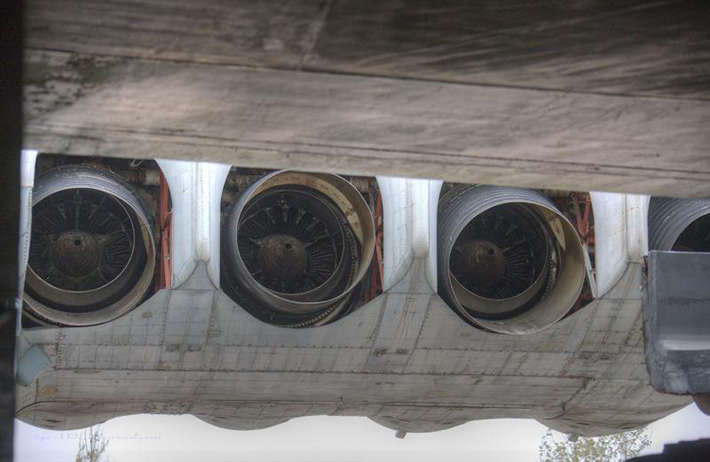
War History Online
Lun was equipped for anti-surface warfar. It carried the P-270 Moskit (Mosquito) guided missile. On the dorsal surface of its fuselage were six missile launchers mounted in pairs. It also had advanced tracking systems mounted in its nose and tail.
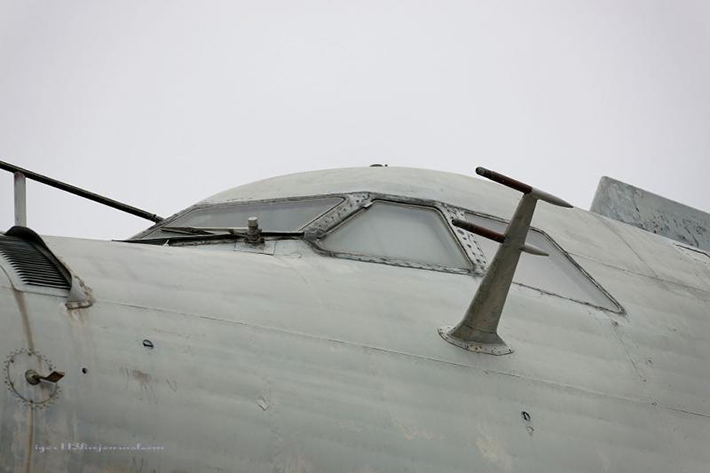
War History Online

War History Online
This “flying ship” had a flying boat hull with a large deflecting plate at the bottom to provide a step for takeoff.

War History Online
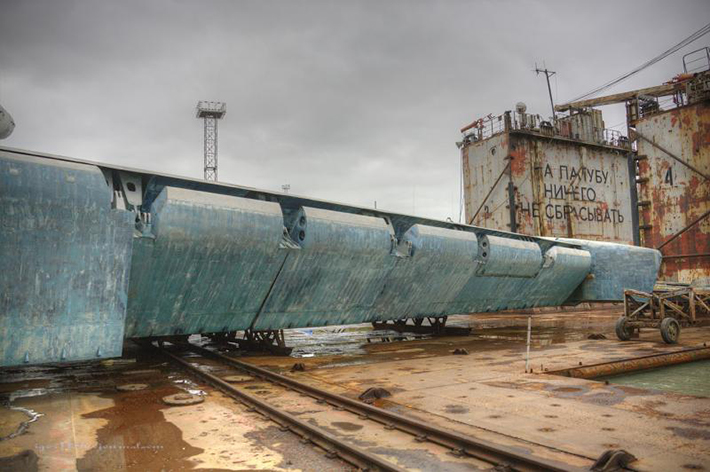
War History Online
The massive Lun must have been glorious back in the day, but it has long been reduced to a “chunk of aerodynamic scrap metal” retired to a forlorn pier in southern Russia.
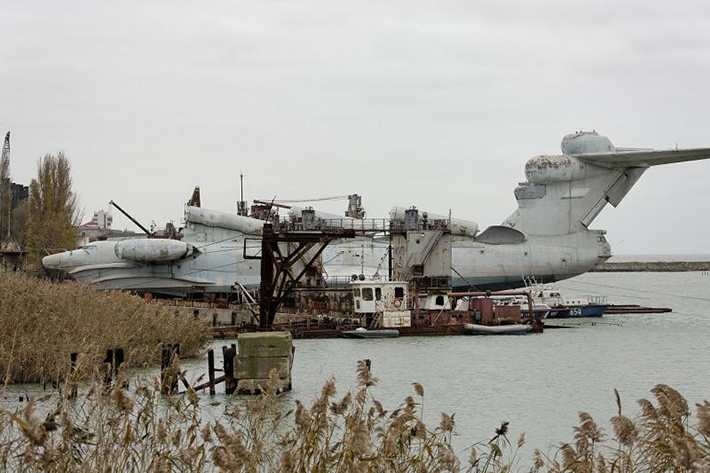
War History Online
Check out the rest of the photos…
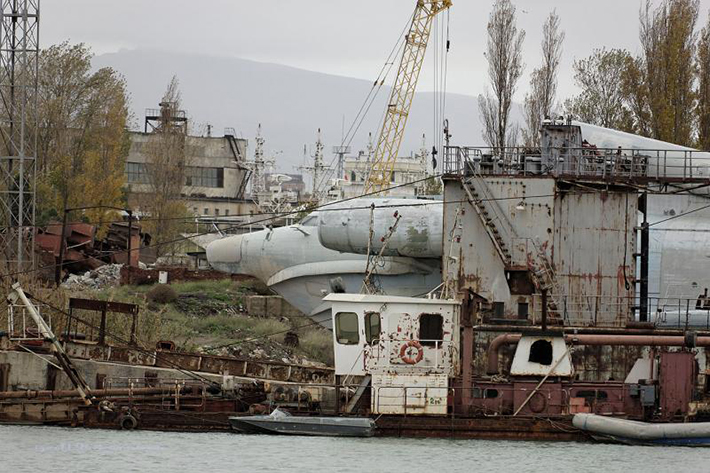
War History Online
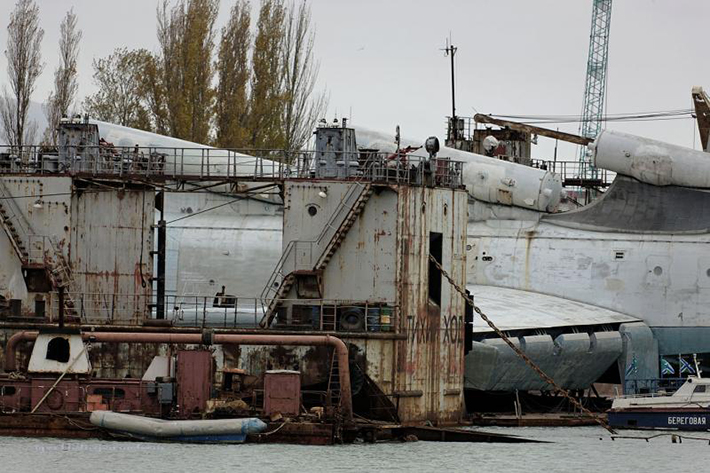
War History Online
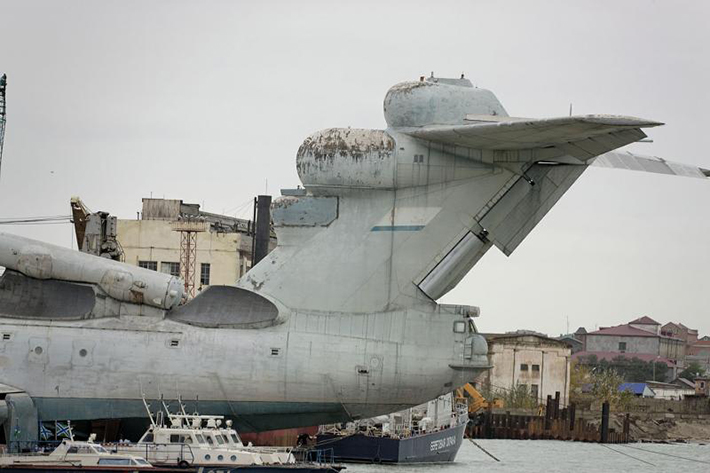
War History Online

War History Online

War History Online
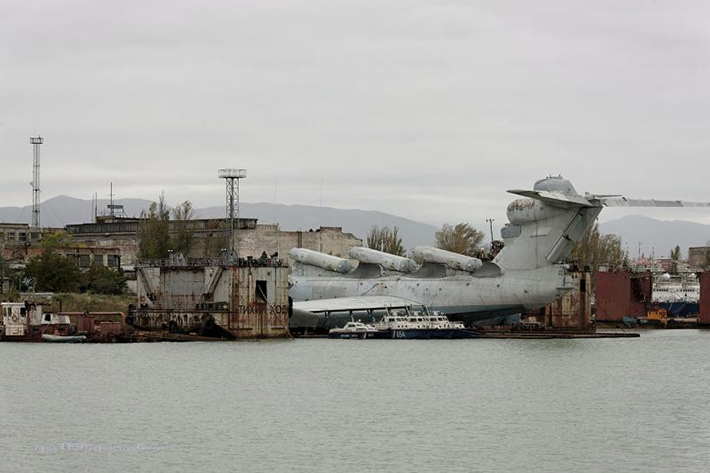
War History Online
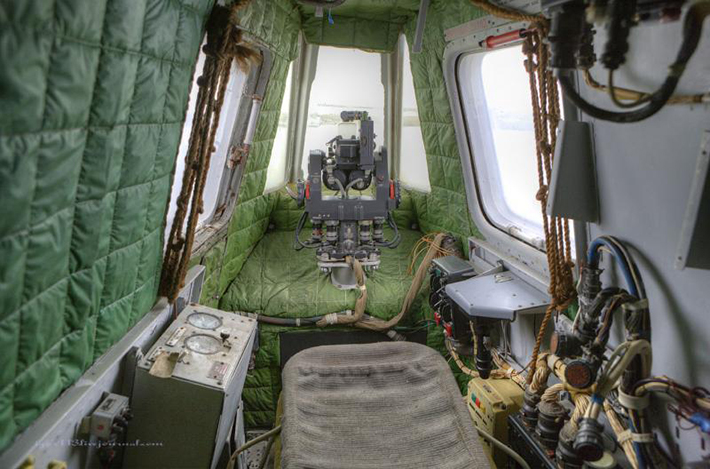
War History Online
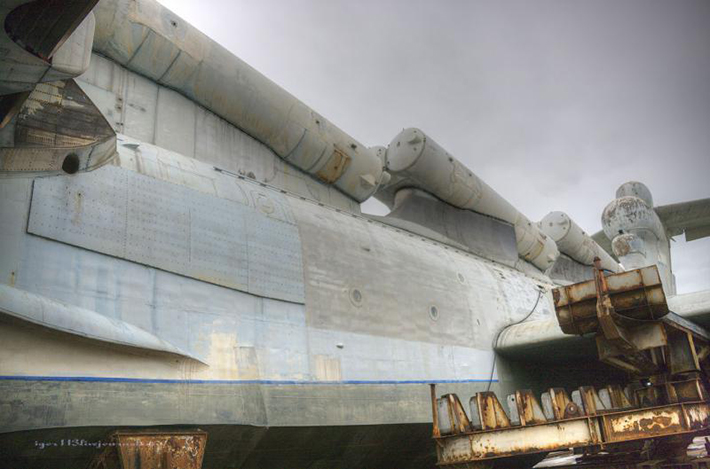
War History Online

War History Online
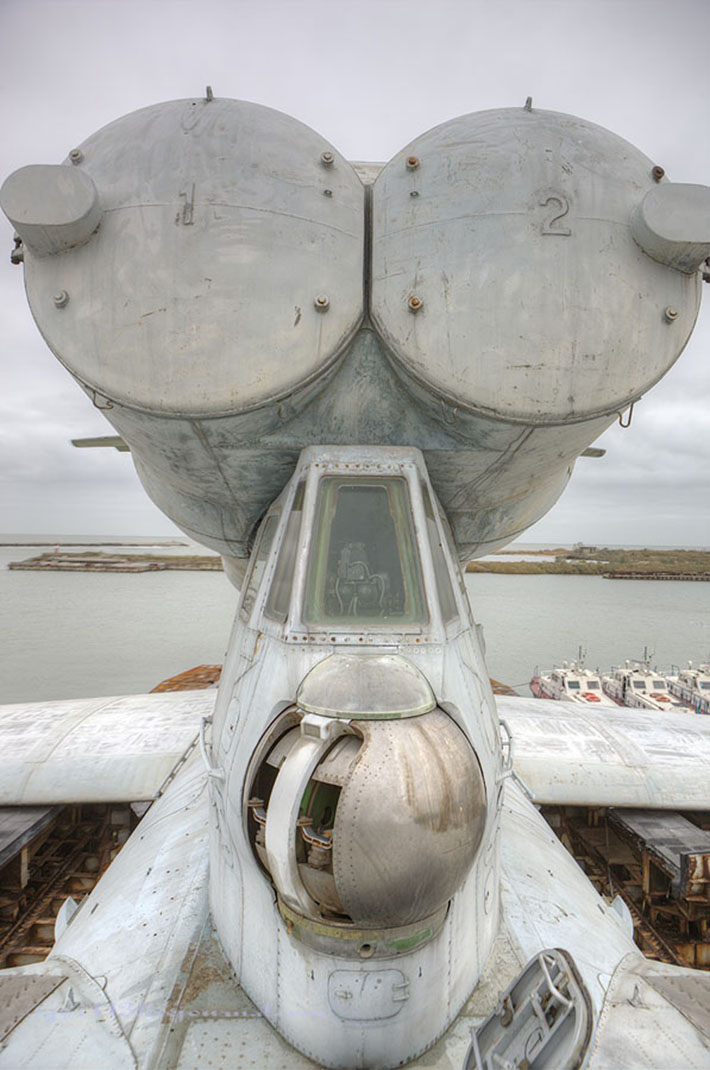
War History Online
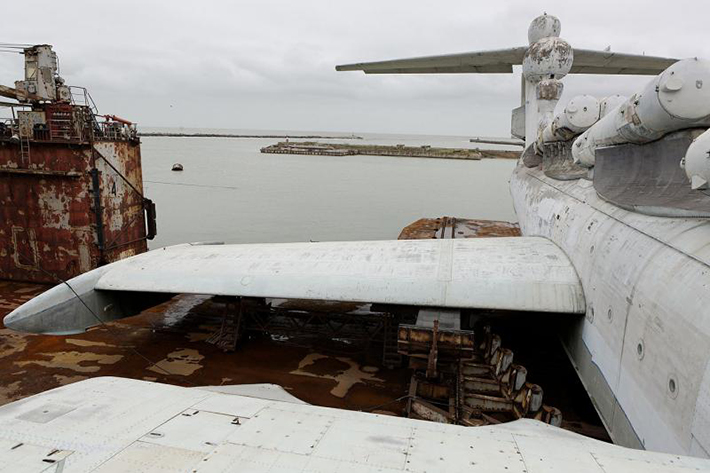
War History Online

War History Online

War History Online
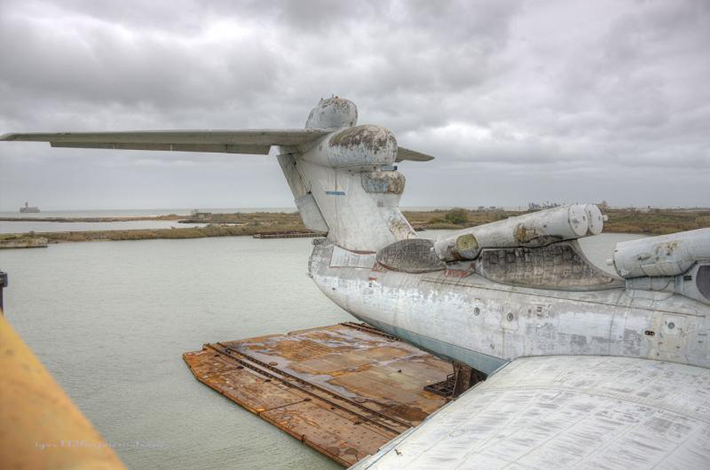
War History Online

War History Online

